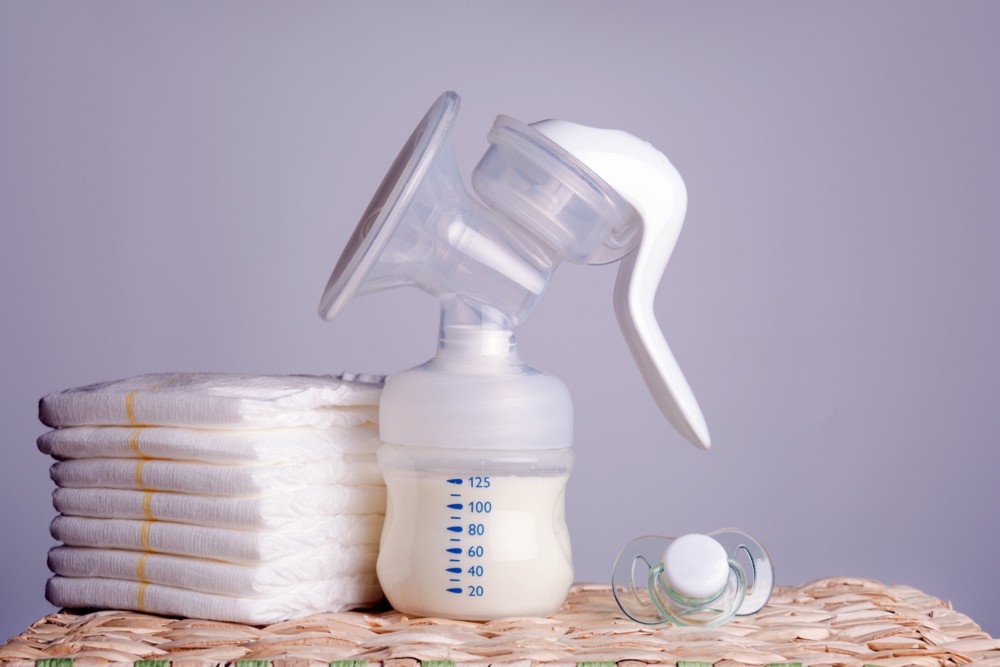Recent statistics tell us that around 83% of all babies receive breastmilk for some portion of their infant life. We also know that the easier it is for mothers – including working mothers – to breastfeed, the more babies are breastfed for extended portions of their infancy and toddlerhood.
Fortunately, legislation like the PUMP for Nursing Mothers Act is working to make that happen. Officially put into action back in 2022 (and wasn’t universally enforced until April 2023), the Providing Urgent Maternal Protections (PUMP) for Nursing Mothers Act was intentionally created to close loopholes that stymied the 2010 “Break Time for Nursing Mothers” Act – tied into the Affordable Care Act.

Here are five ways breastfeeding mothers and their babies benefit from this new legislation, which ultimately protects the rights of mothers who need to take breaks often enough – and long enough – to provide adequate breastmilk for their children.
1. You can take pump breaks regardless of overtime status.
One of the unfortunate loopholes of the 2010 Break Time Act is that its provision about overtime pay created a loophole so that employees who didn’t qualify for overtime also didn’t qualify to take pump breaks. According to the Economic Policy Institute, this left about 25% of the female workforce of childbearing age unable to take those breaks if they had a troublesome manager or employers.
The new revision took care of that so that all working women, regardless of whether they’re entitled to overtime, can take pump breaks without facing any penalties.
2. You can fight violations without fear of penalty.
It might sound good to “speak to power,” but it’s not easy if you aren’t respected in the workplace or genuinely fear for your job, income, or well-being. One of the problems with the 2010 Act was that it failed to outline how women or others could take action if they felt they or co-workers were being denied the right to adequate pump breaks.
Sadly, polls and studies state that as many as 60% of women who technically had the right to pump breaks didn’t have employers who supported them, created a suitable space, or honored the time necessary for a complete pump break.
Now, the PUMP Act grants employees access to legal recourse options available to address other Fair Labor Standards Act violations, and those actions can be taken immediately.
3. The PUMP Act can improve financial standing of qualifying mothers.
As a result of non-compliant employers, women who are committed to breastfeeding their babies often:
- Make less money because their wages are docked for pumping time.
- Miss days of work with no paid time off needing to pump and/or related to the stress of trying to balance work and breastfeeding obligations.
- Lose income due to being fired or forced to resign because of their commitment to breastfeeding over formula feeding.
The hope is that the new laws, regulations, and protective measures included in The PUMP Act will put these lost wages back into play, improving the financial status of working women who breastfeed.
4. You can improve your mental and emotional health.
Working women have a higher risk of postpartum depression. The stress of trying to work, pump, and do what’s right for your baby significantly strains your emotional health, increasing stress and anxiety levels as well as feelings of inadequacy as a mother. This stress is compounded if a woman stops breastfeeding earlier than planned to accommodate work pressures.
Creating workplaces that honor, support, and allow women to pump in private, without pressure and for as long as they need to, is essential to supporting new mothers’ mental and emotional health.
5. Your obstetricians and midwives are on your side.
Just because a piece of legislation is signed into action doesn’t mean employers greet the news with joy and immediate cooperation. Despite the ability to take immediate action, that doesn’t mean the outcome is immediate. It can take a while for things to go through the bureaucratic process.
However, you don’t have to put yourself at risk. Your obstetricians and midwives have your back. We’re happy to proactively educate, inform, and notify employers about what you’ll need to accommodate legally-mandated pump breaks. We’ll also point you in the right direction if your employer is giving you push-back.
NWWC Supports the PUMP Act and Our Breastfeeding Patients
Northwest Women’s Clinic cheered loudly and enthusiastically with the passing of The PUMP Act! We are excited to hear patients’ accounts of how their employers are working to create comfortable, private pumping areas for their breastfeeding employees. However, we also understand that not all workplaces are created equal.
Do you need support educating an employer about their legal obligation to allow you to pump at work? Give us a call and we’ll do our best to support you.
 The Importance of Prenatal Care
The Importance of Prenatal Care